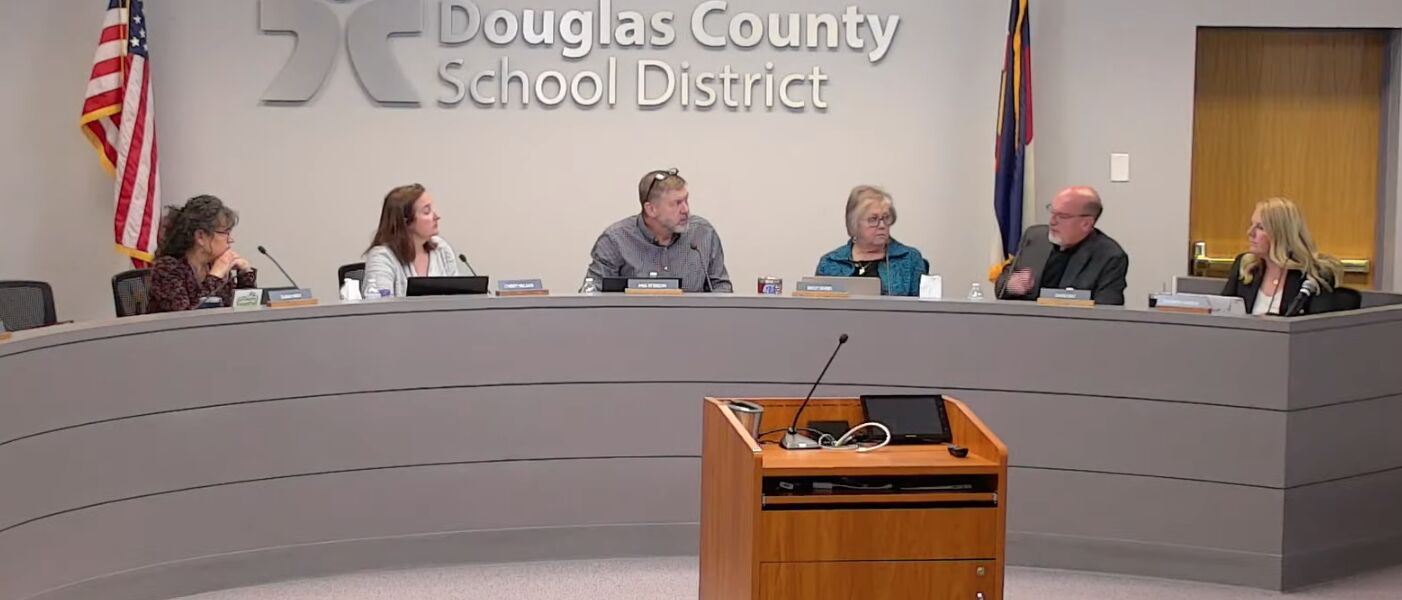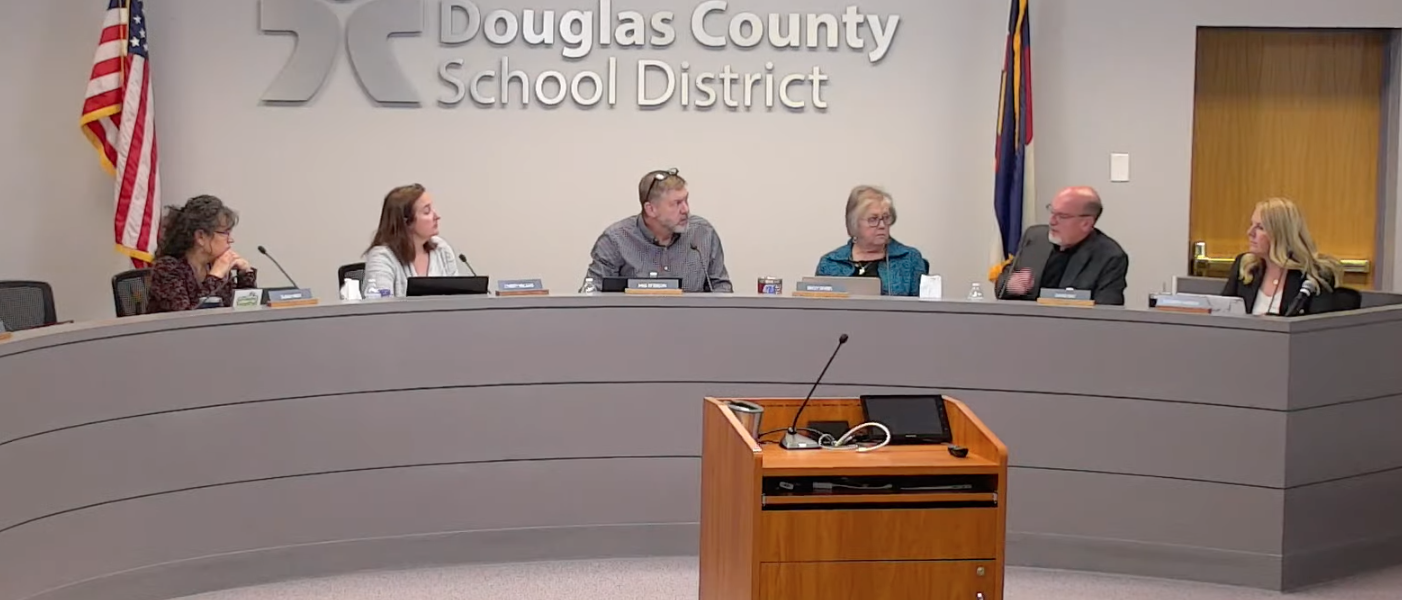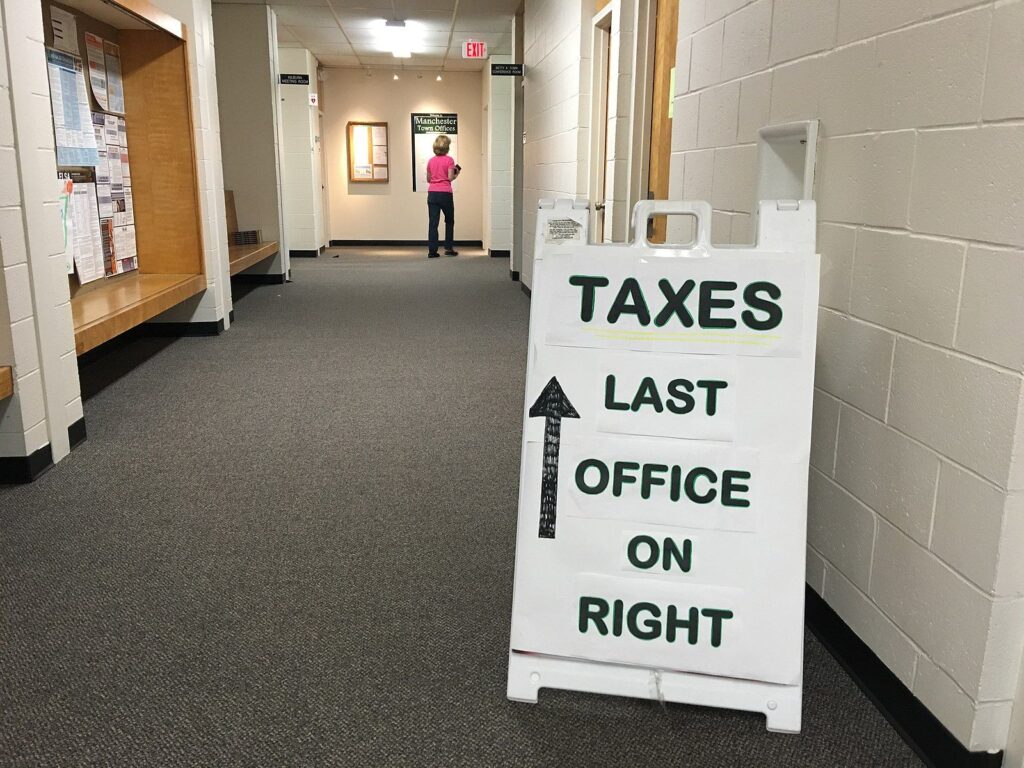Douglas County school board asks judge to reconsider order blocking certain communications

The Douglas County school board has asked a judge to reconsider his order preventing board members from communicating in certain one-on-one capacities, arguing that the order was “wrong on the law.”
The request, filed earlier this week, is the board’s first official response to the order since it was issued nearly two months ago. The board’s new attorneys, Scott Gessler and Geoffrey Blue, asked District Judge Jeffrey Holmes to either lift his order, which prohibits board members from communicating in the manner they did in the run-up to the dismissal of the board’s previous superintendent, or to clarify – and limit – its language.
The suit, filed by Douglas County resident Robert Marshall, is not quite three months old but has already been a source of acrimony within the district and the board. Marshall alleged that the board’s four newly elected leaders broke open meeting laws when they spoke, in one-on-one but linked conversations, about the future of then-Superintendent Corey Wise in late January. Wise would be fired formally a week after the board’s two top officers, Mike Peterson and Christy Williams, told him he could resign, retire or be fired.
Marshall alleges those communications, which took place privately, violated the law. He has asked Holmes to block the board from communicating that way again; to declare Wise’s firing null and void; and to rule formally that those communications were illegal.
Thus far, Holmes has granted the first request. That has triggered consternation within the board and its legal representation. After the judge issued the order in early March, the board met in a special – and chaotic – meeting premised under a misunderstood appeal timeline. That meeting involved board member Elizabeth Hanson, an attorney, criticizing the behavior of the board’s then lead legal counsel from the firm Hall and Evans.
The board later hired Gessler and Blue’s firm to help out on the litigation. In their first filing for the board, the new attorneys told Holmes that he had “misapplied the law” in granting his order and that the order was “far beyond” what Marshall and his attorney, Steve Zansberg, had requested.
They alleged that Holmes’ order prohibits the board from engaging in any one-on-one but linked discussion of public business, forever. That, the attorneys argue, is well beyond the scope of the state’s open meetings law.
“Ostensibly, this means that if Board Director One discusses an issue such as the adoption of a new curriculum by the Board with Board Director Two, he cannot then have a similar conversation with Board Director Three,” they wrote.
In his order, Holmes wrote that the board is barred “from engaging in discussions of public business or taking formal action by three or more members of the (board of education) either as a group or through a series of meetings by less than three members at a time, except in public meetings open to the public.”
Gessler and Blue, the board’s new attorneys, argue that Holmes’ ruling “significantly modifies” the state’s meeting laws and that his reference to Hawaii law is misplaced. At minimum, they said, Holmes should clarify and narrow his order, which they alleged was overly broad.
If he won’t toss the order entirely, Holmes should, they said, tailor the language to block the board from discussing public business in private and reaching an agreement on that business, an agreement that would later be ratified in a proper public meeting.
In an email, Zansberg called Gessler and Blue’s filing “frivolous.”
“Moreover, it demonstrates that the four majority members fundamentally misunderstand the law,” he alleged. “According to them, they are permitted to discuss, outside of public view, all kinds of matters that come before the Board, among all seven of them, sequentially, so long as they don’t make a final formal decision outside of a public meeting. That is unlawful.”
A message sent to a district spokeswoman was not returned Thursday.













